5 Independent Cat Breeds
myshkovsky/iStock / Getty Images Plus via Getty Images
There are several independent cat breeds known for their self-sufficiency and their ability to entertain themselves. Generally, independent cats are low-maintenance and won't become anxious or destructive when left alone for longer periods of time. Their strong-willed nature also makes them perfect companions for pet parents who value independence.
But this doesn’t mean these cats are completely hands-off. Here’s what to know about breeds that tend to be more independent.
Key Takeaways
- Independent cats are typically low-maintenance and don’t become anxious when left alone for a few hours.
- Independent cats still need daily love, care, attention, and enrichment to be happy.
- Ultimately, every cat is an individual with their own personality.
Are Cats Independent Animals?
While it’s true that cats are often more self-reliant than dogs, the idea that they are completely independent isn’t accurate.
Cats require love, attention, and care from their pet parents to thrive. They may not need to be taken for walks or constantly entertained like dogs, but they still benefit from human interaction and companionship. In fact, many cats can become lonely and develop behavioral issues if they’re left alone for long periods of time.
It’s also essential to give independent cats a mentally stimulating environment so they can exercise their natural instincts. You can do this by providing cat toys and play opportunities, as well as creating climbing and exploring spaces for them.
Independent Cats
While every cat is an individual with their own personality, here are some breeds that are known to be independent-minded.
1. Russian Blue
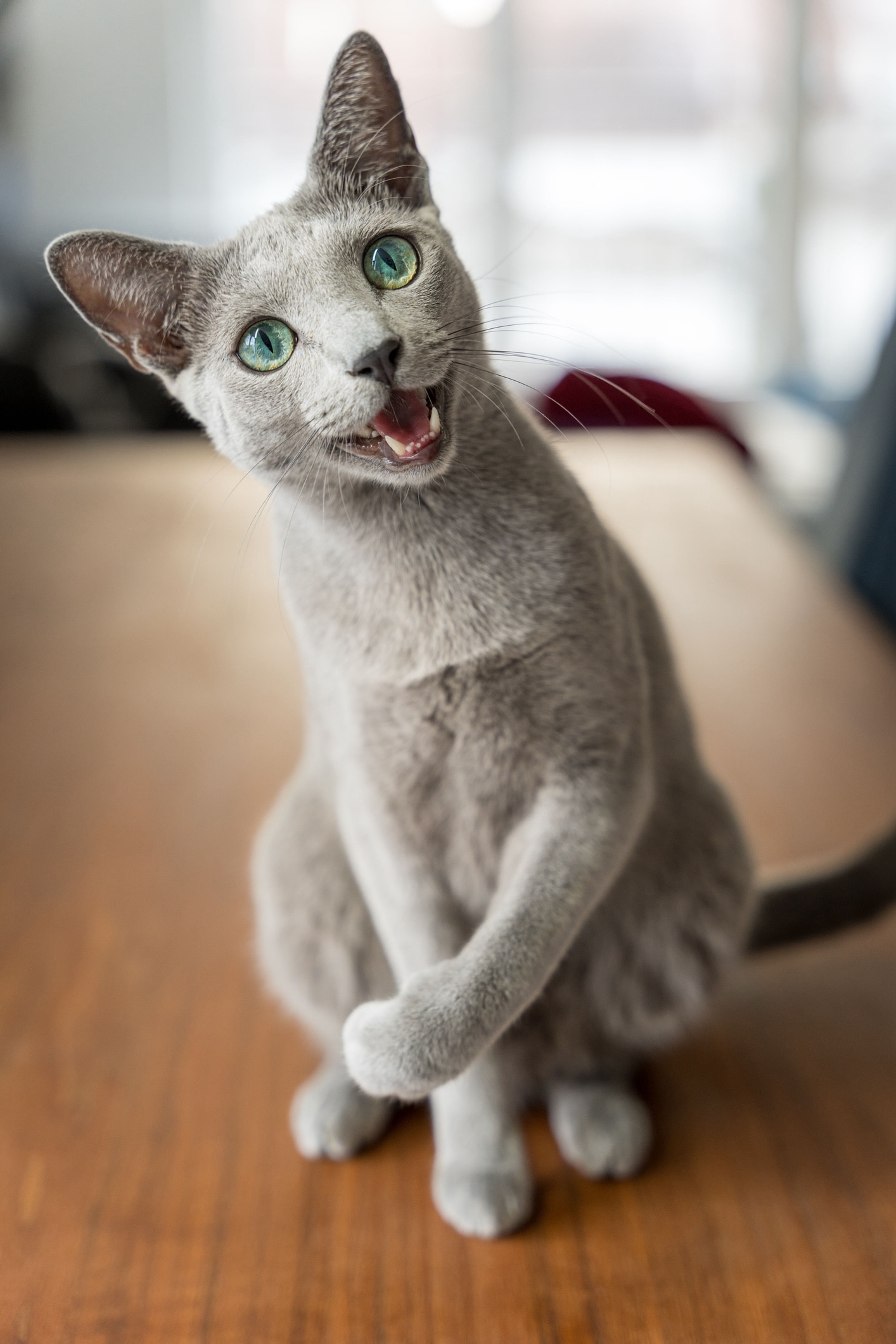
Russian Blues are known for their elegant blue-gray coat. As intelligent, curious, and independent cats, they are an excellent choice for pet parents who want a low-maintenance companion. They are typically reserved around new people but affectionate to their pet parents.
To keep this breed entertained and prevent them from becoming bored or restless, make sure you play with your cat every day.
2. British Shorthair
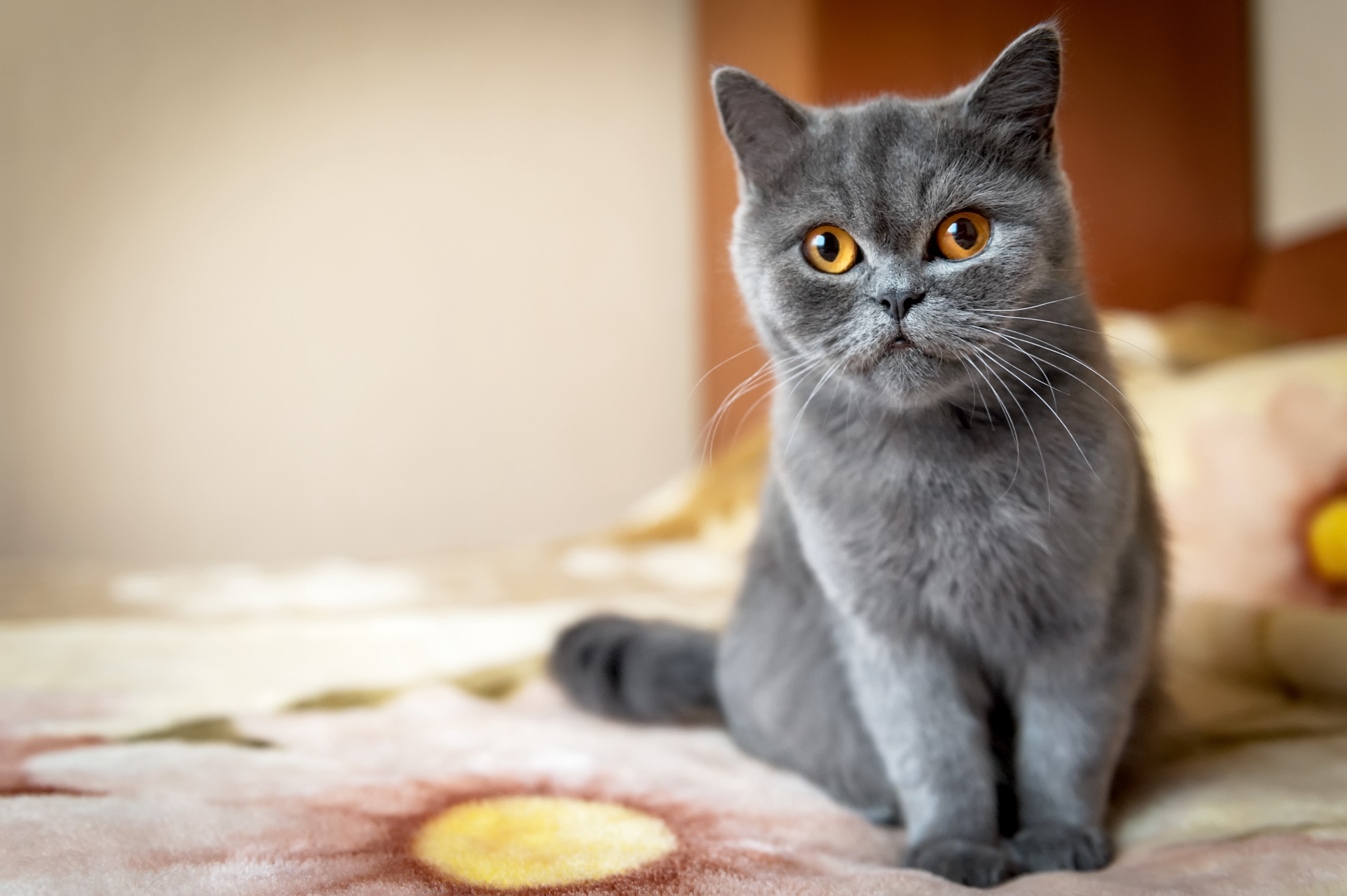
A British Shorthair is an independent cat breed with a laid-back, easygoing personality. Like Russian Blues, British Shorthairs often have a beautiful blue-gray coat, but they can also come in a handful of other colors. Prey-like toys and enrichment are crucial for them, as they have a strong hunting instinct.
3. Himalayan
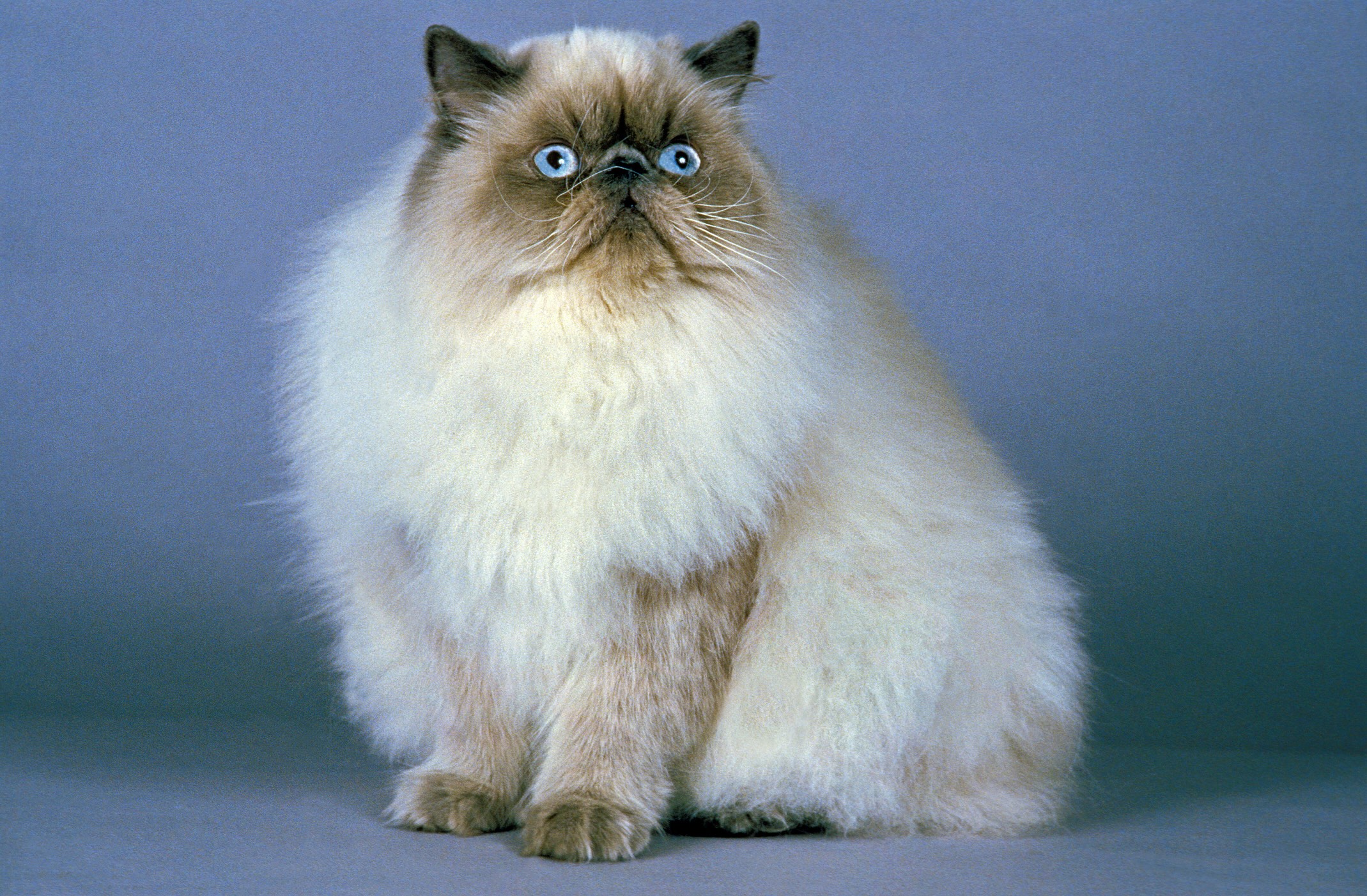
The intelligent and curious Himalayan cat is a mix of the Persian and Siamese breeds. While their independent personality makes them less clingy than some other breeds, Himalayans have a long fur coat that needs daily brushing to stay free of matting and tangles. Daily grooming sessions are also a good way to bond with your cat.
4. Turkish Angora
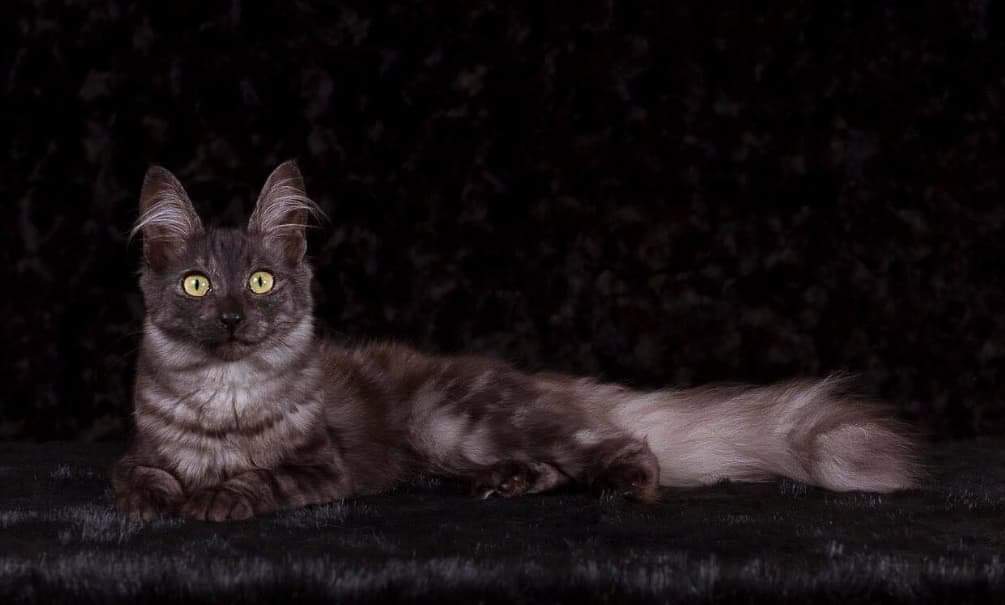
Another independent longhaired cat, the Turkish Angora is elegant, smart, and loyal. True to their independent nature, Turkish Angoras typically don’t like to be held, but they’re known to be playful throughout their life.
5. Korat
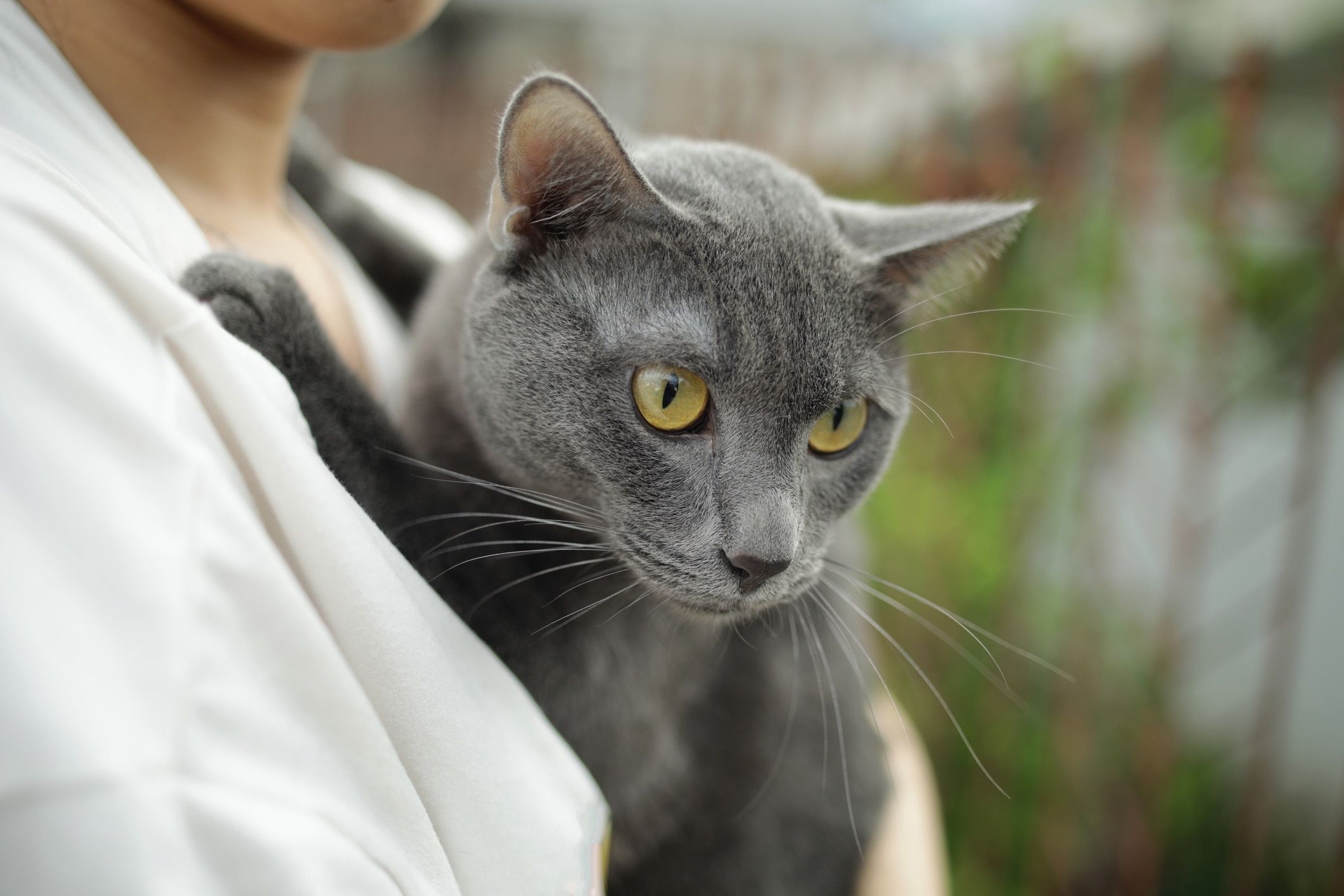
The Korat is a rare cat breed from Thailand. They’re known for their gray coat, green eyes, and independent and intelligent personality. These smart cats are active and love to play with their pet parents, though they may take some time to warm up to new people.
Should You Adopt an Independent Cat?
When choosing the right cat for you, it’s important to consider your lifestyle as well as a cat’s unique needs. Even though cats share some common traits, they have their own unique characteristics, which may make them more (or less!) suitable for your home.
Before choosing your next companion, do your research about different cat breeds and consider factors such as activity level, grooming requirements, and temperament before making your decision.
